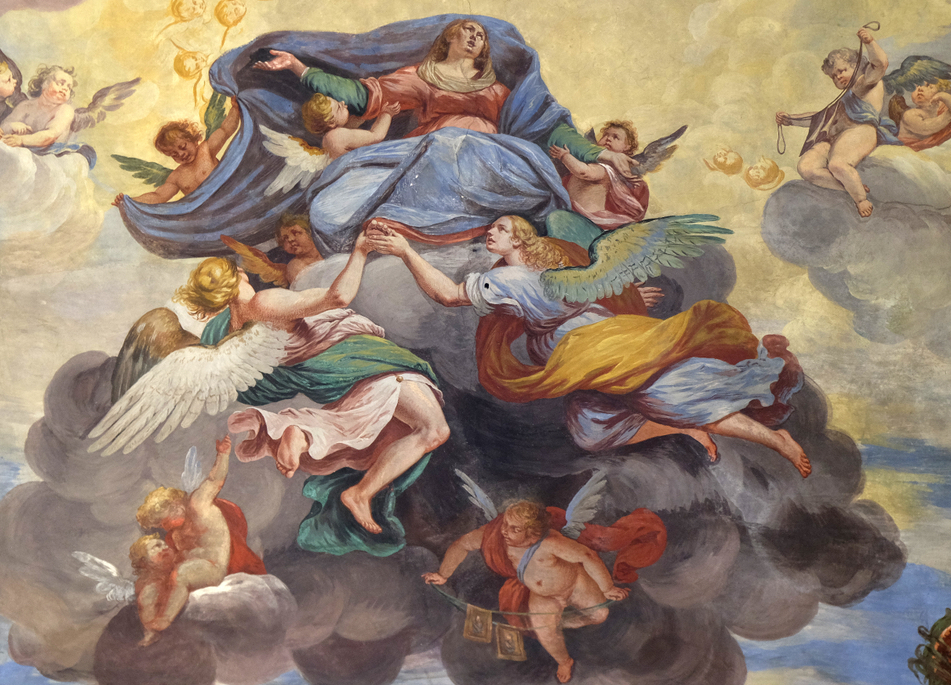In my diocese, we have a ministry called Mary’s Place Refugee Outreach. Muslim refugees from Burma and Thailand were the first to be helped there. In both Catholic and Muslim understanding, Mary, the mother of Jesus, holds a special place of honor. Mary’s Place was chosen as a name that would signal that shared respect.
When I was in parish work, I’d take my youth group kids there every week to help with the after-school program. I remember the first time we visited, Kathy, one of the women who started the ministry, explained to our group that many of the refugees had fled violence and war. Some had to hide in the jungle. Others dug holes to hide their children in and covered them over with dirt to keep them safe from the soldiers who would have killed them. Though they had come here through the U.N. with nothing but the clothes on their backs, they were grateful — joyful even. They and their children were finally safe.
Remembering the story of these refugees made me think of the woman “clothed with the sun” we will hear about in this week’s readings on the feast of the Assumption. The reading from Revelations, vivid with symbols, describes a dragon, ready “to devour her child when she gave birth.” The dragons of war, of violence, still exist. They are still ready as ever to devour both mother and child.
In Luke’s Gospel for the Assumption, though, Mary sings of God’s mercy and his special care for those whom the world would cast aside. God has “lifted up the lowly. He has filled the hungry with good things,” the young Mary says to her older cousin Elizabeth.
The Solemnity of the Assumption of the Blessed Virgin Mary was not defined as a dogma until 1950, but has roots as far back as the fifth century. God’s taking up into heaven of the physical body of Mary is in keeping with what we teach about both the importance of Mary and the importance of our bodies as human creatures. Mary, in her body, goes ahead of us to heaven.
Mary, who experienced all the precarity and danger of being a religious minority in an occupied country, who had to flee with her family across a border to save the life of her young child, and who watched a brutal government torture and kill that child as an adult, would come to know the Magnificat in a completely different way over the course of her life. The Magnificat is Mary’s famous song of praise to God. It shakes the complacency of the powerful and reminds them of God’s strength: “He has scattered the proud in their conceit. He has cast down the mighty from their thrones.” Mary’s song and her Assumption could not be more relevant.
On August 12, Bishop Vasquez of Austin, Texas, Chair of the U.S. Conference of Catholic Bishops' Committee on Migration, issued a statement urging protection of migrant families. He declared that a new government rule, which would severely limit asylum eligibility, “jeopardizes the safety of vulnerable individuals and families fleeing persecution and threatens family unity.”
The Assumption reminds us of our call to care for all who are experiencing danger, hunger, homelessness, statelessness, or are treated as outcasts. It reminds us that God cares for the least and the lowly, and so must we.
Nora Bradbury-Haehl is an author, speaker, and a nationally recognized voice in the conversation about young people and the Church. Her book “The Freshman Survival Guide: Soulful Advice for Studying, Socializing, and Everything in Between” is an Amazon bestseller. She’s written for Saint Mary’s Press, BustedHalo.com, and Liturgy Training Publications. She’s been in youth and young adult ministry for more than 25 years and is involved in interfaith work in her hometown of Rochester, New York.
Start your day with Always Forward, our award-winning e-newsletter. Get this smart, handpicked selection of the day’s top news, analysis, and opinion, delivered to your inbox. Sign up absolutely free today!

